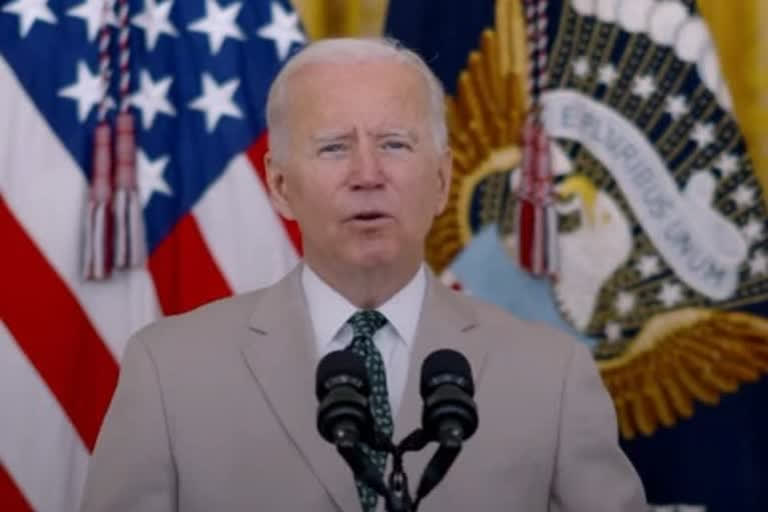Washington: President Joe Biden made up his mind about Afghanistan months really years ago. For more than a decade, Biden advocated for an end to American involvement in Afghanistan. But he did so as something of an outsider, a senator whose ultimate power came in the form of a single vote on Capitol Hill or a vice president who advised another president.
But authority over America's longest war finally fell into Biden's hands this year and he insisted that the US withdraw from Afghanistan, settling on an August 31 deadline. And despite the rapid collapse of the Afghan government, spurring a humanitarian crisis and searing criticism at home and from traditional allies, he was resolute, at times defiant. He took responsibility and in turns leveled blame at his predecessor.
Read: Afghan evacuation 'most difficult airlift' in history: Biden
After months of largely focusing on quelling the pandemic and stimulating the economy, the chaos in Afghanistan triggered the first foreign policy crisis of Biden's presidency, temporarily drowning out his other priorities. His response offers a fuller picture of how Biden approaches his job, relying on a political sensibility he built as a veteran of the Senate who has weathered decades of Washington tumult and scandal.
How Biden is handling the weight of his decision to end the war is a product of his 40 years in public life, many of them spent studying the world. He sold voters on his experience and this is the first time he is offering decisions, not mere opinions in a Senate hearing and he will be judged by the outcome, which is far from clear at this point. Americans are seeing a different side of Biden during this crisis, a sterner, sometimes testy man known much better for his empathy.
In the face of setbacks that would prompt most politicians to step back and offer some level of contrition, Biden has only grown firmer in his position this week. He has acknowledged that the Taliban advanced faster than expected but has said, both privately to aides and in a pair of public addresses to the American people, that the swift collapse of the Afghan government proved correct his longstanding skepticism of the war effort.
If anything, the developments of the past week reinforced that ending US military involvement in Afghanistan now was the right decision, he said Monday, as he sought to sidestep blame for the disorderly withdrawal.
Read: Was Biden handcuffed by Trump's Taliban deal in Doha?
Biden's decision laid bare a cold realism in his view of American military power: American forces shouldn't be used to promote the nation's ideals abroad. Troops, in Biden's estimation, should be focused more narrowly on threats to the homeland, and the nation's diplomatic and economic might are the proper tools to uphold its values overseas. It's a sentiment the White House believes Americans agree with after nearly two decades of endless conflicts, but one that comes with painful cost for tens of thousands of Afghans who assisted the US occupation or thrived under it.
